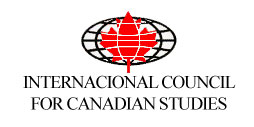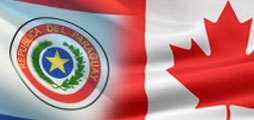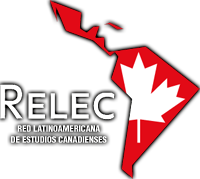- II Congress ‚ÄúUnderstanding Canada‚ÄĚ: Education and Bilingualism to strengthen Democracy
31/08/2011
II Congress ‚ÄúUnderstanding Canada‚ÄĚ: Education and Bilingualism to strengthen Democracy
Sponsored by Foreign Affairs and International Trade Canada (DFAIT)
Asunción, August 18th, 19th and 20th 
 
The II Congress ‚ÄúUnderstanding Canada‚ÄĚ: Education and Bilingualism to strengthen Democracy will be hosted by the Centro Paraguayo de Estudios Canadienses (CPEC) in Asunci√≥n, Paraguay on August 18th, 19th and 20th 2011, at the Universidad Americana. The Congress will provide an open forum for professionals in the field of Education, Technology, and English Language teaching, to meet with colleagues who share similar interests, and to allow for the exchange of ideas and practical teaching experience. Renowned professionals from Canada and Canadianists will present, offering talks, workshops and papers.
 
The main objectives of this Congress are:
·         To promote future cooperative projects among participating research teams from the various countries.
·         To establish closer ties among researchers from the Americas by discussing and exchanging ideas on the relationship to the issues that will be approached in the conference.
·         To encourage the involvement of young researchers to make scientific-quality, innovative presentations.
·         To promote inter-disciplinary and international dialogue
·         To produce and disseminate information through publications and articles/interviews in the media, programmes, invitations and special events.
 
Cost:
CPEC Members:   no cost
Non Members:    150.000 Gs.
 
To register for the Congress, click on the "register for this event" at the bottom of the page or at the following address: Gral. Santos 606 c/ Juan de Salazar (Stael Ruffinelli de Ortiz- English).
 
Jennifer Rowsell‚ÄĒ Brock University
Jennifer Rowsell is a Canada Research Chair in Multiliteracies at Brock University in Canada. She has written and co-written books, chapters, and articles on Multimodality, New Literacy Studies, and Multiliteracies. Her current research focuses on Visual Communication in Communities; Modal Learning; and Applying Design Epistemologies in High School Classrooms.
 
Doing multimodality: Voices from the Field
The presentation will feature two research studies that offer a framework for teaching ‚Äė21st century skills‚Äô in contemporary classrooms. One research study prompts us to think about what experts in digital media, technology, and other professional design fields think about and do when they innovate. The other research study explores how 20 secondary school students apply design principles in their grade eleven English class. Together, the research studies offer educators and teacher educators new ways of thinking about teaching students based on new literacy practices, thinking systems, and concepts that will contribute to more contemporary learning. Understanding ‚Äė21st century thinking‚Äô involves stepping outside of what we know in education and incorporating new frameworks and new practices. Whether an individual is using a mobile communication device or contributing to a social networking site, the skills that we use to communicate out in the world are fundamentally different from how literacy is taught in-school.
 
Diane Dagenais‚ÄĒ Simon Fraser University
Diane Dagenais is Professor in the Faculty of Education at Simon Fraser University. She teaches in both French and English and her research focuses on issues of diversity and language learning related to immigration, bi/multilingualism, literacy, and second language education.
 
Language Awareness: Teaching Strategies Aimed at Meaning Making Across Languages
This workshop will provide a hands-on exploration of practical activities on language awareness that have been developed for late elementary and secondary classrooms in multilingual contexts. The activities are adapted from language awareness projects internationally and work undertaken by teacher-researcher teams in Canada. These activities aim at fostering more inclusive learning environments by having students systematically attend to the range of languages represented among their classmates, in their communities and around the world.
 
Jennifer Jenson‚ÄĒ York University
Jennifer Jenson is Associate Professor of Pedagogy and Technology in the Faculty of Education at York University. She is currently co-editor of Loading‚Ķ: The Journal of the Canadian Game Studies Association and president of the Canadian Game Studies Association.¬†Working with Suzanne de Castell (Simon Fraser University) and a team of students, she has co-designing an educational game, ‚ÄúContagion‚ÄĚ and is currently working on two new games, ‚ÄúEpidemic: Self-Care for Crisis‚ÄĚ and a Baroque music game. She has just completed a 3-year study of gender and digital gameplay, and has begun another on novice players and new game controllers. ¬†She has published widely on education, technology, gender, design and development of digital games, and technology policy.
 
Designing Play in Digital Games Workshop
In recent years, accessible, web-based tools have allowed users to participate directly in the production of online content. These ‚ÄėWeb 2.0‚Äô tools enable users to author, publish and edit material in textual, audio, visual, multimodal and interactive formats, and have the potential to re-position students as not simply ‚Äėconsumers‚Äô of curricular, but as ‚Äėproducers‚Äô ‚Äď of animations, news reports, public service announcements, educational video games, blogs and ‚Äėvlogs‚Äô and so on. Many also argue that the skills engendered through these technologies are central to both citizenship and work in today‚Äôs society.
The challenges, however, are how to incorporate these tools into teaching in ways that are pedagogically meaningful, that enrich rather than distract or disrupt educators’ practice, and that ensure all students can take part in the skills and competencies that these digital technologies can afford.
 
Herv√© Fischer ‚ÄĒ FIAM (F√©d√©ration Internationale des Associations Multim√©dia)
He is co-founder and co-president (1985), with Ginette Major, of La Cité des arts et des nouvelles technologies de Montréal  and president of the Science Pour Tous (a network of Quebec's science et technology institutions)of the International Federation of Multimedia Associations.
 
Revisiting and reinterpreting the myths of the Tower of Babel and Sisyphus, as fundamental myths of today's society of information and to celebrate our cultural and linguistic diversity
The myth of Babel has always been interpreted in a negative way, but I understand it as the expression of human’s desire to rise. An aspiration towards God, as it is found in the edification of cathedrals, or a dream of human kind to rise to a higher phase of its evolution, towards more power and perhaps also more intelligence, more wisdom with the objective of better understanding each other and enrich ourselves with the diversity of the peoples, the cultures and the languages.
The myth of the Tower of Babel is presented as the first myth of communication, founding myth of our society of information and of the so-called social media. It is a biblical myth. We also have to link it to the Greek myth of Sisyphus, this King who is sanctioned by Zeus and forced to carry on his shoulders every morning his heavy load to the top of the mountain from which it will roll back down to the bottom every night. Sisyphus expresses our daily and persevering effort to carry higher a heavy Stone of our building: human kind. Sisyphus symbolizes then our persevering effort of grandeur.
The Tower of Babel brings to the stage the division of human kind punished for its arrogance towards God. Today it constitutes the wealth of our linguistic and cultural diversity. The myth of the Tower of Babel  is presented as our most current myth, founder of our future. Despite of how dramatically both myths show us the difficulty of rising, they also paradoxically ask us to weave the links of a planetary ethics and solidarity. We cannot stop persevering, along with millions of other Sisyphus, with the building of this Tower, bearer of all our hopes.
 
Diane Dagenais
Diane Dagenais is Professor in the Faculty of Education at Simon Fraser University. She teaches in both French and English and her research focuses on issues of diversity and language learning related to immigration, bi/multilingualism, literacy, and second language education.
 
Developing multiliteracies in an international exchange of videos among bi/multilingual children
Researchers have suggested that engaging in multiliteracies involves making meaning of (taking meaning from) a wide variety of multimodal, symbolic/representational systems, including language (Coiro, Knobel, Lankshear & Leu, 2008; Kress, 2003; Jewitt, 2002) and a range of other media, like images, video, Web pages, sound and so on. With the global flows of people, products and information today, culturally and linguistically diverse classrooms are increasingly common so that as well as developing multiliteracies, contemporary learners and teachers increasingly require understandings of different linguistic and cultural practices. Yet, efforts to build upon the varied practices and knowledge students of diverse origins bring to school are rare. I discuss data emerging from our ongoing research that examines how multiliteracies might be developed through the production and exchange of videos between bi/multilingual elementary and high school children living in three sites: 1) Vancouver, Canada; 2) Dharamsala, India; 3) Oaxaca, Mexico.
 
Jennifer Rowsell
Jennifer Rowsell is a Canada Research Chair in Multiliteracies at Brock University in Canada. She has written and co-written books, chapters, and articles on Multimodality, New Literacy Studies, and Multiliteracies. Her current research focuses on Visual Communication in Communities; Modal Learning; and Applying Design Epistemologies in High School Classrooms.
 
What‚Äôs ‚Äėnew‚Äô in New Literacy Studies? New Literacy Studies ten years on ‚Ķ
In considering the New Literacy Studies, the field has been shaped by people and by an anthropological, ethnographic approach to data collection and analysis. Researchers have gone to particular contexts to think about and to watch people, and then they write up their observations. Research from the New Literacy Studies examines literacy practices, and literacy events, and many researchers have used its perspectives to look at what people do with literacy. The view of literacy as a social practice has been around for some time now. New Literacy Studies, specifically, has been around for almost twenty years and although its central tenets still hold true, the field has moved on. In this presentation, I will return to central tenets of New Literacy Studies accompanied by their enactment in classrooms in Canada, the United Kingdom, and the United States, and conclude with a look to new challenges and definitions to our conceptions of New Literacy Studies in new times. Built on a second edition of Literacy and Education: Understanding New Literacy Studies in the Classroom, I will present how teachers mediate a New Literacy Studies approach to teaching and learning with more traditional notions of literacy in curriculum and policy and some of the new tensions and challenges in an ever-changing communicational landscape. 
Since the first edition of Literacy and Education, the field has moved on with exciting work by scholars such as Hilary Janks in South Africa who powerfully applies linguistic theory onto visual texts to demonstrate the exertion of power and she does so with a political intent to expose issues of diversity, access, and domination through design. The work of Kris Gutiérrez who takes account of misconceptions about dual language learners and monolithic views on the literacy practices of other cultures living in the United States. Eve Gregory and Charmian Kenner in the United Kingdom examine the importance of considering religious diversity as part of the drive to social inclusion. There is a rich repository of research on place-based education profiled in chapter five by such scholars in Australia as Barbara Comber, Phil Cormac, Bill Green, and Helen Nixon. Cathy Compton Lilly in the United States has followed African-American learners in Rochester, NY over a decade chartering their literacy lives with rich ethnographic detail. Finally, Kate and I have looked at the notion of artifactual literacy as a modern heuristic for approaching literacy in the classroom. This work separately and collective have moved New Literacy Studies forward into nuanced perspectives on the early work of Scriber and Cole, Shirley Brice Heath, and David Barton and Mary Hamilton.
Kathleen Lundy
Kathleen Gould Lundy is Coordinator of Destination Arts at York University. She has extensive experience working in literacy, equity and arts education in inner-city schools in various school boards throughout Canada. She was a teacher, consultant and coordinator for over 30 years in the Toronto District School Board where she became interested in ways that inventive, inclusive teaching could impact student achievement especially amongst those students who were most at risk. Kathy regularly works with teachers and administrators who are intent on bringing marginalized students into the mainstream.
 
Cracking the Code: Inventive, Interactive Strategies to help Students find the Meaning behind the Words
This workshop will focus on the meaningful, serious business of play in digital game environments. Following a brief lecture, participants will be invited to assemble into small groups to collaborate on the development of an educational game idea, and will be invited to ‚Äėstoryboard‚Äô that idea, pitching their educational game design to other workshop participants. Dr. Jenson will facilitate a discussion on the opportunities and challenges of doing this kind of work.
In this workshop, Kathy will share proven methods for¬† creating respectful classroom communities where students become intrigued and then inspired to find the underlying meanings in challenging texts. Kathy will talk about her literacy work with disadvantaged youth and discouraged readers and writers who have difficulty finding ‚Äúthe meaning behind the words.‚ÄĚ. In this workshop, teachers will learn how to actively engage their students in literacy learning by having them:
- visualize situations, relationships and characters;
- entertain various points of view in discussions;
- wonder about the meaning behind the words;
- project their voices in Readers Theatre;
- embody texts through movement;
- solve interesting problems collaboratively, and
- talk themselves into understanding, 
Come prepared to explore active, engaging literacy strategies that bring texts alive for struggling readers.
 
Verónica Pacini-Ketchabaw
Pedagogical Innovations in Early Childhood Education
This presentation will highlight the collaborative processes, negotiations, and complexities of doing action research in early childhood education contexts. Why is practitioner research an important component of democratic classrooms?  How does action research transform learning envinronments? How can educators build a networks that will best serve the well-being of young children?  The presentation will provide examples from British Columbia, Canada as well as from from international early childhood education models and discourses (such as Sweden, Northern Italy and New Zealand).
 
Hervé Fischer
He is co-founder and co-president (1985), with Ginette Major, of La Cité des arts et des nouvelles technologies de Montréal  and president of the Science Pour Tous (a network of Quebec's science et technology institutions)of the International Federation of Multimedia Associations.
Plenary: Challenges, Hopes and Dangers of the Digital Mutation













